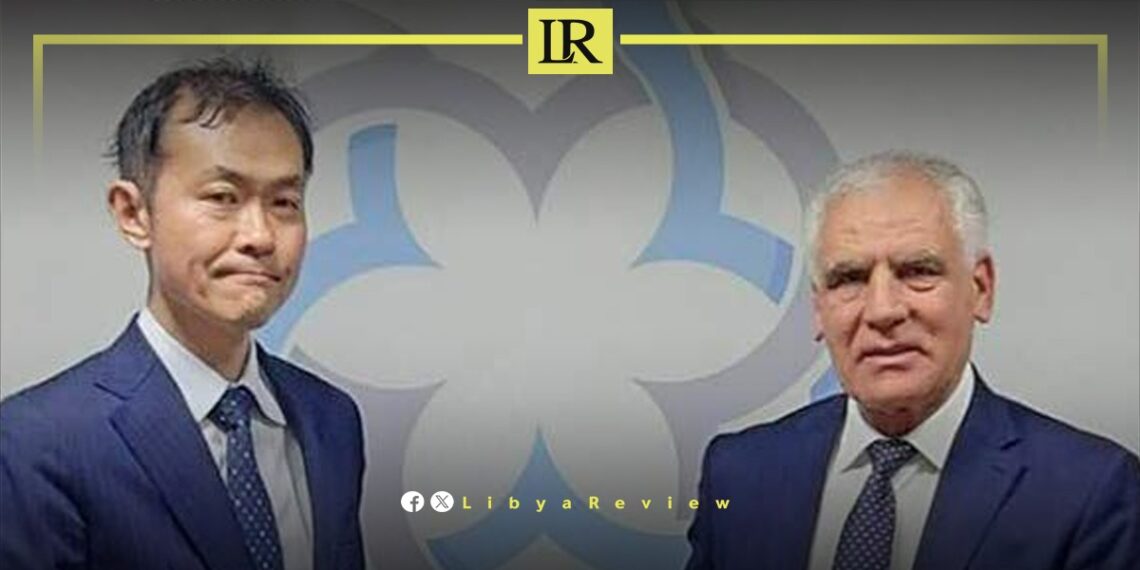Konagaya Hideaki, Director of Japan’s Ministry of Foreign Affairs Middle East and Africa Division, initiated key discussions in Tripoli on Thursday aimed at expanding trade exchange and fostering economic collaboration between Libya and Japan.
During a constructive meeting with Mohamed Raee, Chairman of the Libyan Chamber of Commerce, Industry, and Agriculture, Hideaki explored the vast potential of the Libyan market.
Previously, the Japanese official met with Mohamed Issa, Deputy Minister for Political Affairs at the Libyan Foreign Ministry, to review progress in Japanese-Libyan relations. Both parties emphasized the importance of cooperation among businessmen from Libya and Japan.
Issa expressed the Libyan Foreign Ministry’s readiness to facilitate Japanese delegations’ visits to Libya soon to strengthen bilateral cooperation.
These talks signify a pivotal moment in Libyan-Japanese relations, reflecting a shared commitment to deepening economic and trade ties and unlocking promising prospects for business communities in both countries.
Last month, Japan announced a $1.6 million donation to support UNICEF’s flood relief operations in Eastern Libya, focusing on enhancing health, water, sanitation, and child protection services for affected communities.
This contribution, announced during a meeting between UNICEF’s representative Michele Servadei and Japanese Ambassador Masaki Amadera in Tripoli, underscores collaborative efforts to address urgent needs in flood-affected regions.
Japan’s previous $1 million donation in October highlighted its commitment to humanitarian assistance and set the stage for continued support to affected communities.
The floods in Eastern Libya underscore the urgent need for robust international aid and cooperation. Japan’s significant donation reflects its commitment to global humanitarian efforts, providing immediate relief and supporting long-term recovery and resilience.
This collaborative effort between Japan and UNICEF demonstrates the power of international partnerships in addressing critical needs of disaster-hit populations, focusing on sustainable recovery and the well-being of vulnerable groups, particularly children.


